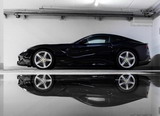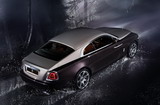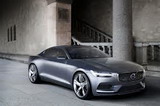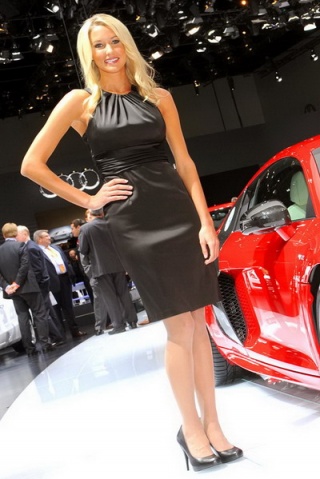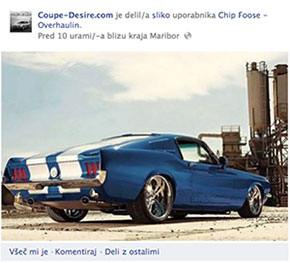Tenth anniversary of Bosch Common Rail as technology becomes standard in cars
-Strictest exhaust emission limits are met with Common Rail technology
-Strong growth expected in the US and Asia
-Common Rail also for low-price vehicles
The future of diesel engines began in 1997. Ten years ago, Bosch introduced the Common Rail injection system for passenger cars to the market. The first cars to feature this technology were the Alfa Romeo 156 JTD and the Mercedes-Benz C 220 CDI. "Common Rail provides the diesel engine with better performance and higher torque. At the same time, the technology considerably reduces fuel consumption, noise, and emissions from diesel engines," said Dr. Ulrich Dohle, president of the Bosch Diesel Systems division, on the occasion of Common Rail's tenth anniversary. And automakers were, he said, convinced by these advantages, with the result that nearly every new passenger-car diesel engine around the world is now equipped with a Common Rail system.
Common Rail for the world market
Drivers are also persuaded by Common Rail technology. In Western Europe , every second newly registered passenger car was equipped with a diesel engine in 2006. When the technology was launched in 1997, this figure was just 22 percent. In Europe, the situation was as follows in 2006: Belgium had the highest percentage of diesel engines with a market share of 74 percent. It was followed by France (71 percent), Spain (68 percent), and Portugal (65 percent), then Austria (62 percent) and Italy (59 percent). In Germany, 44 percent of all new passenger cars had a diesel engine. This year, Bosch expects an increase in Western Europe to over 52 percent.
Common Rail technology has a great deal of potential for improving the diesel engine still further. "With this technology and in combination with other measures, we'll be able to meet even the strictest exhaust emission standards currently planned," Dohle said. It even enables compliance with California's exhaust emission standards, which are the world's most demanding. Several automakers in the U.S., Europe, and Japan are starting a diesel drive aimed at the U.S. market. Bosch expects the market share of diesel-powered passenger cars to increase from its current level of approximately six percent to 15 percent in 2015. The main benefits of diesel engines are reduced fuel consumption and lower CO2 emissions.
The "clean diesel" may become established even faster in the Asian emerging markets. The driving force behind this development is emission standards that can only be fulfilled with high-pressure injection systems. This year, Bosch expects to sell at least 100,000 Common Rail systems in China , and the same number in India . By 2010, it is likely that there will be some 1.3 million such systems in each of these countries. At present, just one-fifth of the company's total production of high-pressure injection systems is for the markets in Asia and the Americas, but by 2015 this figure will be nearly 50 percent.
Today, Bosch produces Common Rail components at 15 sites in 11 countries. This year, Bosch alone will sell more than eight million systems, an increase of almost one-fifth. Last year, the figure was 6.8 million systems. Since 1997, more than 33 million engines have been equipped with Bosch Common Rail technology.
Clean and economical
"Modern diesel engines are cleaner than ever before," said Dohle. "This makes the technology extremely promising for the future, as well as capable of fulfilling present-day requirements." Since the early 1990's, carbon monoxide, nitrogen oxide, and hydrocarbon emissions have been reduced by 95 percent and more. The further development of the common rail also ensures that even today, the diesel engine consumes more than 30 percent less fuel than the gasoline engine, while emitting roughly 25 percent less CO2. "Our Common Rail technology will play a major role in meeting the future Euro 5, Euro 6, and US07 Bin5 exhaust emission standards," said Dr. Ulrich Dohle. "As a result, the combination of Common Rail technology and exhaust-gas treatment is securing the future of the diesel engine."
With a comprehensive Common Rail product portfolio, Bosch serves all the requirements of today's market offering systems with injection pressures of 1,350, 1,600, and 1,800 bar. The diverse specifications of the engine manufacturers are met with systems with solenoid-valve and piezo-valve technology. In addition, the next innovation steps for common-rail technology are rapidly approaching. "We will tap any potential we see for the further development of Common Rail technology," said Dohle.
Developments include injection pressure being increased to 2,000 bar and more, allowing extremely sophisticated engine designs to be implemented – such systems will go into series production before the end of 2007 – and especially cost-effective Common Rail systems with an injection pressure of 1,100 to 1,450 aimed at emerging markets such as India or China. They are primarily intended for the low-price vehicle segment, and are also scheduled for launch at the end of 2007. For the middle market segment, Bosch is developing new systems in order to gradually reduce costs and fuel consumption.
